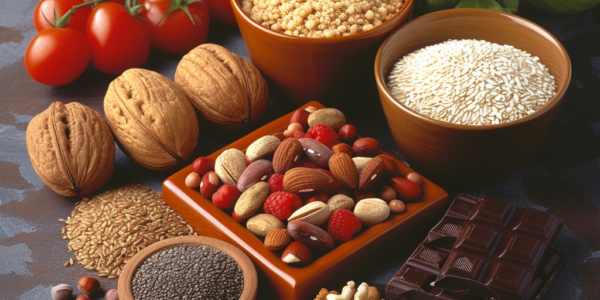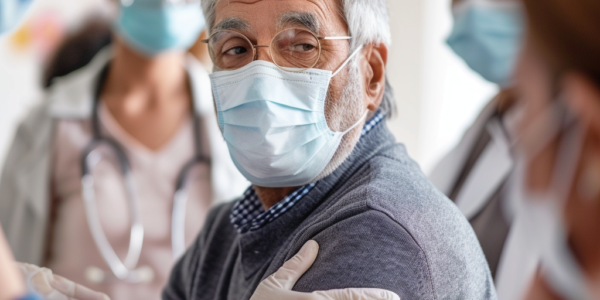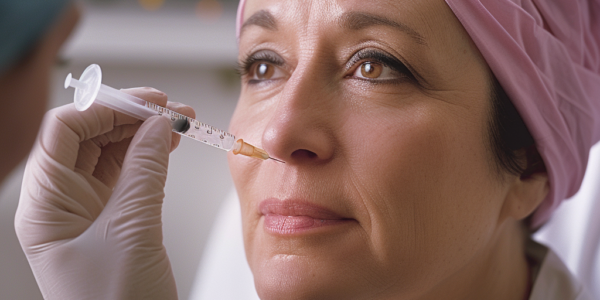The Science of Heartbreak: Understanding the Physical Effects of Breakups
Learn about the physical effects of heartbreak on our bodies and brains in the new documentary Love Hurts: The Science of Heartbreak. Discover expert advice for healing from heartache, including self-care, seeking physical comfort, avoiding rumination, and engaging in physical exercise for mental well-being.
Snoop Dogg’s daughter Cori Broadus reveals 40-pound weight loss after health scare
Snoop Dogg’s daughter, Cori Broadus, reveals her inspiring 40-pound weight loss journey following a health scare. After suffering a stroke, the 24-year-old committed to self-care and a 4-week recovery program, sharing her daily routine and dietary changes on Instagram. Her transparency and resilience serve as a source of motivation for her followers, emphasizing the significance of self-care and perseverance.
Coconut Oil and Ghee in Indian Cooking
Coconut oil and ghee are essential components of Indian cuisine, each offering unique flavors and cultural significance. Both oils have potential health benefits and are rich in fat-soluble vitamins. Coconut oil is high in lauric acid and suitable for high-heat cooking, while ghee is prized for its rich flavor and higher smoke point. When determining which oil is healthier, factors such as nutritional composition, cooking properties, and potential health effects need to be considered.
The Struggle with PCOS and the Pill
Writer Fani Mari shares her experience with PCOS and how she found relief through myo-inositol instead of relying on the pill. Learn more about PCOS, its symptoms, and potential treatments in this informative article.
The Truth About Magnesium Supplements
Magnesium supplements have gained popularity as a solution for health concerns, but the effectiveness is debated. Understanding the role of magnesium in the body and the recommended intake is crucial. While supplements are widely promoted, scientific evidence supporting claims of fatigue and sleep improvement remains inconclusive. Prioritizing a magnesium-rich diet over supplementation may be a more sustainable approach to overall well-being.
Surge in Syphilis Cases Raises Concerns Nationwide
Syphilis cases have surged nationwide, with a nearly 79 percent change from 2018 to 2022. UPMC’s Dr. Ken Ho expressed concern over the rise in congenital syphilis, emphasizing the potential risks for babies. Accessing healthcare and delayed testing may be contributing to the increase. The county health department highlighted the disproportionate impact on men who have sex with men and Black residents. Dr. Ho urged raising awareness, expanding testing availability, and engaging in open conversations about protection and testing to combat the spread of syphilis.
WHO Releases New Guidance on Ethics and Governance of Large Multi-Modal Models of AI
The World Health Organization (WHO) has released new guidance on the ethical and governance considerations for large multi-modal models of Artificial Intelligence (AI) in the healthcare sector. The guidance aims to promote the responsible use of AI and protect public health, highlighting potential risks and offering recommendations for governments, technology companies, and healthcare providers.
BC Cancer Centre at Royal Inland Hospital Approved
The Government of British Columbia has approved the business plan for the BC Cancer Centre at Royal Inland Hospital (RIH) in Kamloops, B.C. The $359 million project will include a five-storey facility with state-of-the-art cancer treatment capacity, including radiation therapy, MRI suite, and linear accelerator vaults. The facility will also feature a sacred space for traditional ceremonies in collaboration with Indigenous partners, and a new 470-stall parkade. BC Cancer executive vice-president and chief medical officer Dr. Kim Chi expressed excitement for the new treatment options to be brought to the region.
Challenges and Potential Preventive Measures for the Immunocompromised Community During COVID-19
The COVID-19 pandemic has presented unique challenges for the immunocompromised community, who are struggling to find effective protection against the virus. With the withdrawal of monoclonal antibody treatments from the market, this vulnerable group is facing a shortage of resources to safeguard themselves. In light of this, many are turning to supplements, vitamins, and other products in the hope of strengthening their resilience against COVID-19. Among the commonly studied supplements are vitamin C, vitamin D, zinc, copper, iron, N-acetylcysteine, and quercetin. However, the evidence regarding their effectiveness is inconclusive due to confounding variables and the limitations of well-designed clinical trials. Despite the potential of antiviral drugs in preventing the progression from mild-to-moderate disease to severe illness in COVID-19, their utilization remains remarkably low in the general adult population. Recognizing the value of antiviral drugs in preventing severe disease outcomes is crucial, particularly for patients with comorbidities. Amidst these challenges, the importance of standard precautions and vaccination cannot be overstated.
New Breakthrough Treatment for Triple-Negative Breast Cancer
Australian scientists have developed a new treatment for triple-negative breast cancer, a highly aggressive and deadly form of the disease. The oral medication specifically targets cancerous cells, sparing healthy cells, and addresses metastatic lesions that have shown resistance to chemotherapy. This breakthrough offers hope for improving the survival rates of patients with this difficult-to-treat form of cancer.
























